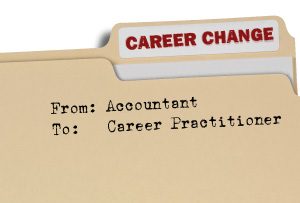
What took you into Accountancy to start with?
My indecision. In Year 12, I still didn’t know what I wanted to do but I was good at Accounting – I’d topped the class for 3 years straight – and my Careers Advisor asked why I didn’t go into that, so I said yes like a normal 17 year old does. It was easy, and I could get back to surfing.
Were there any bits of it you did enjoy?
Yes – learning something new. I enjoyed the first couple of years because I was learning.
When did you realise you needed to make a career change?
Disillusionment. I had enjoyed learning about accounting and had completed a degree, but five years in and working as a Finance Manager I felt that there had to be more to work than chasing people for unpaid bills or overspending on budgets.
What steps did you take from there?
Travel – Time – Thought. I quit and went backpacking through Europe (yes, we could travel in those days!!). Travel is great to have the space and time to think through what is important to you, in work and in life. I looked at my values and found that money and status weren’t as important to me as variety and being able to help others. I came back from Europe ready for a change but not sure what it would look like.
What things were most helpful in changing career?
Understanding myself – Taking up a random opportunity. After working out my interests, values, skills and personality, I was randomly approached by an old school friend who was working in a school. He wanted to bring industry closer to the school, to help students with career transitions. He thought that being an accountant, I had the perfect transferable skills to step into an Industry Liaison role for the school. It was the best move I’ve ever made as it has led me on a journey where I could have a career doing what was important to me. There was of course extra study, challenges, successes and transitions to other career development related jobs, but it was well worth making the change and taking the opportunity that was presented.
What kinds of things held you back?
The big thing was the uncertainty going forwards; the what-ifs. What if I can’t find another job. What if all jobs are like this. I also thought maybe I should see if I could stick it out; I was in a job that paid well…
One day, the time came… It was a case of working long hours, not enjoying it and then coming home and spending weekends maintaining the old wooden Queenslander I lived in. I thought, there has to be more to life than this.
Tell us about what you’re doing now?
I provide career development services for young jobseekers. With Covid-19 we have seen changes in the workplace. There are people losing their jobs and thinking about what they could do next.
My advice is to use this time to re-assess your career. Think about your career direction, set the compass and start building your resources for when opportunity knocks. Transferable skills will be gold when changing careers. Employers need you to show them that you possess the skills to do the job, so you need to be clear what employers want and how you have those same skills.
In my current role, Covid-19 has forced a change in how we work. Career sessions have moved from in-person to Zoom or phone. Work is from home, not in the office. Workshop activities need to be more engaging to entice our participants to accept the Zoom invites. We developed a Zine to better communicate and strategies to prepare jobseekers for online job interviews.
What advice would you give people thinking of making their own career change?
Just do it! Make sure it’s an informed decision, and don’t just jump because the grass is greener – make sure that the grass really is greener, that it’s being watered regularly and getting lots of sunshine! Honestly, just do it – get moving, because as they say, if you sit still, nothing will change.



